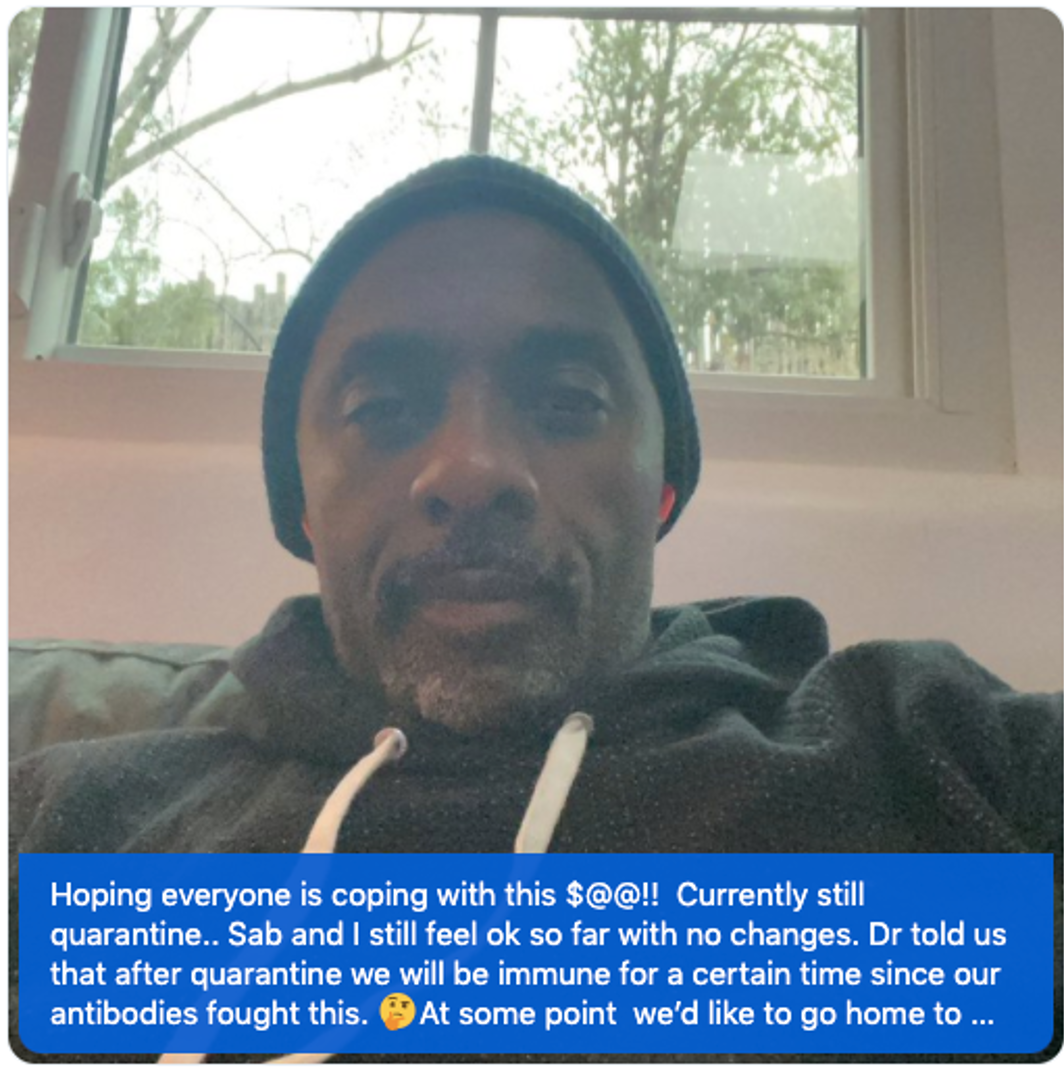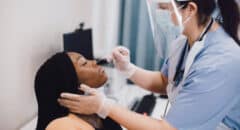
Actor Idris Elba has been keeping fans updated on his health after revealing on March 16 he tested positive for COVID-19. The Hobbs & Shaw star is in quarantine with his wife, Sabrina Dhowre, who also tested positive. Both have been asymptomatic.
"Sab and I still feel ok so far with no changes," he posted on social media Wednesday.
The 47-year-old actor noted something interesting his doctor shared.
"Dr told us that after quarantine we will be immune for a certain time since our antibodies fought this," Elba added, with a "thinking face" emoji.
Do people who recover from COVID-19 really become immune to the virus for a period of time?

Well, first answer is yes, a person can become immune (or resistant) after exposure to a disease-causing agent, like the coronavirus COVID-19. The process of becoming immune includes the production of antibodies specific to the virus for future protection.
This production typically happens when a person develops the symptoms of the viral disease, but also may occur without symptoms. Irrespective of the symptoms, after significant exposure and time to develop the antibodies, a person becomes immune to that specific virus. In other words, the person is naturally "protected."
There's a new term called "herd immunity." It's a new phrase for many people, but we're hearing about it more and more, so it's important to understand exactly what it is.
According to the American Heart Association, if a large group of people – the herd – is immune to a virus, then an individual in the middle of this group is unlikely to become infected. The virus has a very hard time getting through the herd. Herd immunity, then, happens when people in a community are protected from a virus and its associated disease to a degree that people who are not immune are still protected because of the high population immunity.
Herd immunity can slow the spread of a contagious virus. Herd immunity can be alternatively achieved by...
...vaccinating people if there is an available vaccine (or vaccines). Treatments that may be discovered and developed will help prevent progression of disease, help people recover from COVID-19 and will probably add to herd immunity.
Herd immunity is disease-specific and is influenced by the ease with which the disease spreads from person to person, or the level of contagiousness. The specifics about coronavirus and herd immunity are not yet characterized. Regardless of the specifics, achieving herd immunity by the repeated process of infection of one person, recovery and immunity will take a long time – many, many months or even years.
In patients who have recovered from Covid-19 or may have carried the virus without realizing it, a serological test can show who carries antibodies, even if the virus is no longer present. Antibodies are proteins that help the immune system identify and eliminate threats. Once they’re made, they help the body neutralize future infections from the same threat.
Establishing who is immune is important for figuring out who can safely return to work.
Serological tests use blood serum, the liquid part of blood, excluding cells and clotting proteins. Even though SARS-CoV-2 isn’t typically present in blood, an infection causes white blood cells to make antibody proteins that help the immune system identify viruses and stop them, or mark infected cells for destruction.









